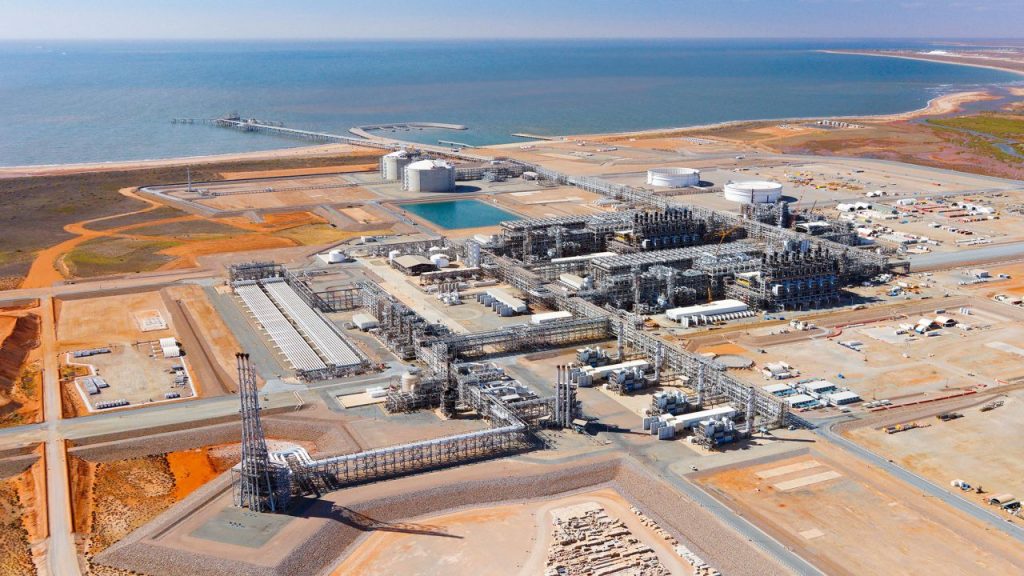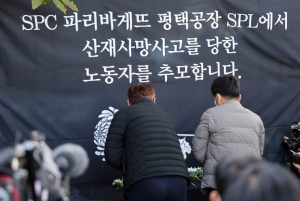Chevron workers in Western Australia are threatening to intensify their strike, troubling the global liquefied natural gas (LNG) market. Last Friday, the strike started at the production sites of Wheatstone and Gorgon, two gas production facilities located in Western Australia
Despite occurring in what could be described as the middle of nowhere — the Wheatstone facilities are surrounded by desert with the nearest town, Karatha, 300km away — the strike has the potential to seriously impact global LNG supplies
There are four gas production facilities in this area, which extract and liquefy natural gas, two of which are operated by Chevron, the world’s fourth largest oil major producer. Australia, meanwhile, is the world’s leading exporter of LNG, ahead of Qatar and the United States, exporting over 20 percent of global supply. The two Gorgon and Wheatstone installations produce 29 percent of Australia’s and 5.65 percent of the world’s LNG.
On these facilities, which bring in billions of dollars for oil companies, unions denounce the working conditions and salaries as too low. The Offshore Alliance, comprised of the Maritime Union Australia (MUA) and AWU (Australian Workers Union), which claims to organize nearly 98 percent of platform employees, is fighting in particular to obtain a new collective agreement (an EBA, Enterprise Bargaining Agreement), improving working conditions and wages. Since last Friday, the 500 employees of the two platforms have been on a rolling strike 11 hours a day, but this could intensify on Friday, September 15, into an indefinite 24-hour-a-day strike.
Employees are seeking to bring working conditions and wages in line with a neighboring platform, the Northwest Shelf venture owned by Woodside Energy, the largest LNG production facility in Australia, where a strike was narrowly avoided at the end of August with the company making numerous concessions in the face of threats to stop production. Woodside Workers gained monthly salary increases between $A1,600 (US$1,032) and A$4,100 (US$2,645), as well as better working conditions. As part of the same struggle to improve working conditions for offshore workers involved in LNG production, a year ago, a 76-day strike shook Prelude FLNG, a gigantic floating extraction platform. The oil giant Shell lost A$1.5 billion Australian dollars (US$968 million).
Although these salary increases seem enormous, the official inflation rate in Australia is approximately 8 percent. And offshore refinery workers are working in extreme conditions. All employees at these installations are located in extremely remote regions while living in Perth, the regional capital, located 1,400km from the installations. Typically, workers work three weeks in a row for one week off, with plane trips back and forth. This is why, beyond salary increases, the strikers are demanding payment for flight delays, as well as being paid full-time rates for the time they are prevented from returning to their families as a consequence of extreme weather events such as cyclones.
The employees are also mobilizing against aggressive management: on its Facebook page, the Offshore Alliance denounces “a toxic work culture.” 27 percent of employees consider denigrating and humiliating behavior from management to be a major problem, and 57 percent say they have witnessed or been victims of harassment and intimidation in the workplace. The union concludes: “Chevron’s workplace culture is as toxic as the BTEX (benzenes) and mercury it exposes workers to on their Gorgon facility.”
Faced with the strike, Chevron is currently refusing to acknowledge the workers grievances and demands, and has already launched legal proceedings against the strikers. At the same time, the fifty subcontracted workers on the Gorgon platform were evacuated by plane a few days ago to prevent the strike from spreading. The Western Australian government has also already threatened employees with banning the strike, de facto requisitioning the strikers, on the grounds that stopping the installations could threaten the state’s gas supply and therefore electricity production. LNG from the site provides nearly half of Western Australia’s energy supply.
Originally published in French in Révolution Permanente on September 14.
Translated by Feargal McGovern










